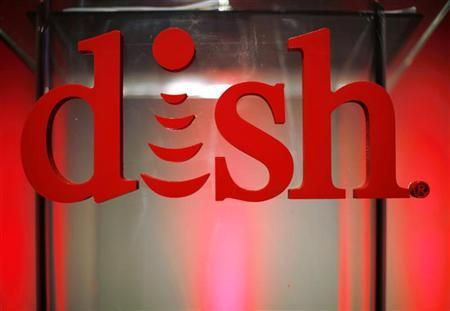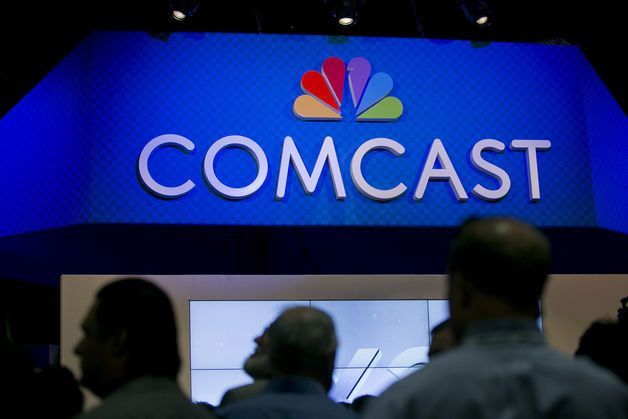Dish Network-Comcast SportsNet Dispute Comes Down To The Wire, With Sports Fans Caught In The Middle

It’s not often that Comcast Corp. comes off looking like a good guy in the eyes of pay-TV subscribers, but the Philadelphia cable and media giant may achieve that rare public relations victory this week.
The company is flexing its muscle against Dish Network in an escalating carriage dispute that could end with some of its popular regional sports networks being yanked from the satellite-TV service. Comcast SportsNet channels in five markets (Chicago, California, New England, Mid-Atlantic and the Bay Area) are up for renewal on Dish, and Comcast is warning subscribers in those areas that they may lose access to hundreds of live sporting events each year.
In an aggressive PR blitz, Comcast launched a number of websites -- one aimed at each market -- urging sports fans to contact Dish and demand that it keep their favorite teams on the air. If the channels go dark, Comcast warns, viewers will lose access to exclusive games from the Boston Celtics, the Chicago Bulls, the Washington Redskins and numerous teams across the country.
Dish may drop the channels as early as Monday.
Viewers are taking Comcast’s bait, with many using the hashtag #IWantCSN to voice their objections on social media. “If @dish drops @CSNMA I will cancel my service next day,” one Washington Capitals fan threatened.
“If they cancel Warriors games, I will immediately launch an effort to cancel my contract and subscribe to another service,” another subscriber wrote on Facebook. “This is not a channel I can do without.”
As of Monday afternoon, neither side seemed willing to budge. At issue are the fees Dish must pay to Comcast-owned NBCUniversal to carry the SportsNet networks. In general, programming costs are skyrocketing for pay-TV distributors; they’ve been cited by the Federal Communications Commission as one of the main reasons the average cable bill has risen so dramatically over the last two decades. And sporting events -- one of the few types of programming viewers still watch live -- are a big part of that equation.
“Sports is a unique issue,” said Tuna Amobi, an analyst with S&P Capital IQ. “Most distributors point to sports as the No. 1 reason why content costs are growing significantly faster than inflation. Dish has been one of the most vocal distributors when it comes to pushing back.”
NBCUniversal said its websites have been tracking the number of actions taken (emails, tweets and phone calls) by Dish subscribers since the showdown went public last week. In a statement Monday, the company said that number has climbed into the hundreds of thousands. “Until an agreement is reached, we expect DISH customers who are growing tired of showdowns and blackouts to continue to voice their displeasure and consider other providers,” the company said.
NBCUniversal claims on its websites that it is “simply asking for rates and distribution terms consistent with those that have been agreed to with many other distributors.” But Dish Network disagrees. In a statement to International Business Times, the company accused Comcast -- which is both the largest pay-TV provider in the country and a major content player -- of abusing its uniquely powerful position in the marketplace.
“Comcast SportsNet is demanding a double-digit percentage price increase for more than 90 percent of Dish customers in each of the affected markets, when only a small fraction of those consumers actually watch the channels,” a Dish spokesperson said. “This heavy-handed tactic is troubling given Comcast’s proposed merger with Time Warner Cable that would allow it to exercise even more power to leverage programming content in anti-competitive ways.”

For Dish Network, which has 14 million subscribers and about 14 percent of the pay-TV market, this is the third carriage dispute to be fought on a public stage over the last several weeks. In a similar battle last month, the company took significant blowback from viewers after it dropped several channels owned by Turner Broadcasting, including CNN and the Cartoon Network. While the networks have since been restored, a deal between the two companies has not yet been reached.
In an earrings call with analysts last month, Charlie Ergen, Dish Network’s notably outspoken chairman, dismissed the interruption of CNN as a “nonevent,” citing the channel’s sinking ratings. But he may not be so flippant this time around.
That’s because negotiating with Comcast is an entirely different animal. It’s not just an owner of content; it’s also one of Dish Network’s key competitors in the pay-TV space. Indeed, some Dish subscribers are already threatening to switch to Comcast if a deal to keep SportsNet can’t be reached. It’s no wonder why Dish Network in August petitioned the FCC to reject Comcast’s proposed merger with Time Warner Cable on the grounds that it would give Comcast unfair bargaining leverage.
“This is pretty consistent with what [Ergen] has been saying for months,” Amobi said. “It’s that no one company should get this kind of power.”
Christopher Zara is a senior writer who covers media and culture. Got a news tip? Email me here. Follow me on Twitter @christopherzara.
© Copyright IBTimes 2025. All rights reserved.






















